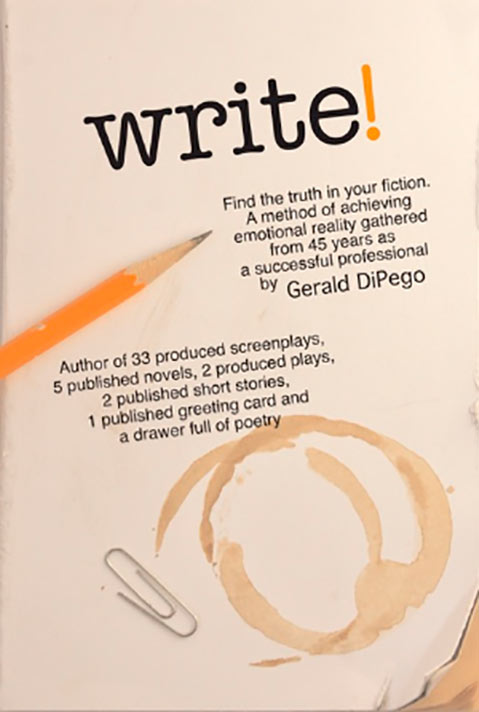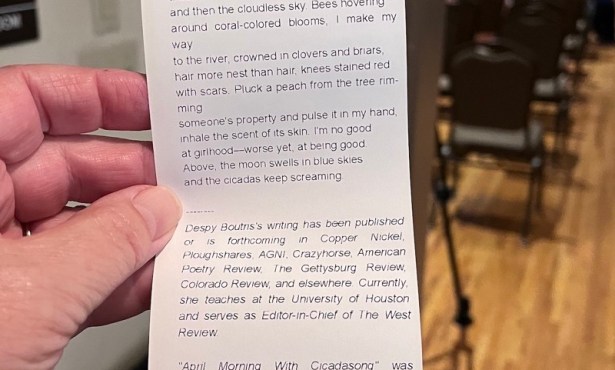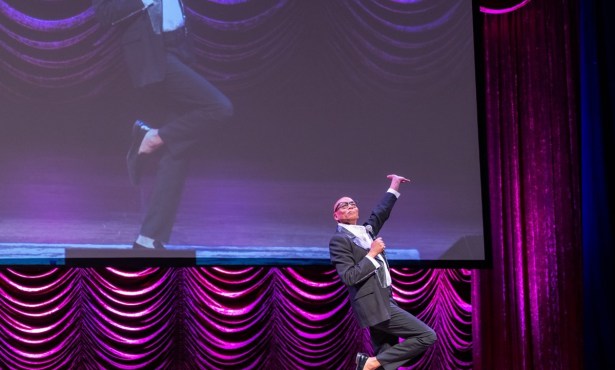Gerald DiPego Talks New Book, ‘Write!’
Santa Ynez Author Offers Writing Tips at S.B. Writers Conference

If someone is going to advise you on how to improve your writing, Santa Ynez’s Gerald DiPego is more than equipped for the job. The author of new e-book Write! brings 45 years of screenwriting and creative writing experience to the table; his most recent work, Words and Pictures, was a widely praised film starring Juliette Binoche and Clive Owen. DiPego will appear as part of the S.B. Writers Conference speaker series with his talk Ten Writing Tips from the Trenches. I spoke with DiPego about his new book, screenwriting, and emotional realism.
What made you decide to write the book? I did bits and pieces of teaching all these years, and I knew I had something that I could transmit, that I had learned by doing, so I think it was my taking a step back from the film business and opening up more of my life and my time, which made a good space for the book. Also, my family and I were kicking things around, saying, let’s do some e-books on the Internet, and for me, there’s only one thing that will do. It was quite a job — you do a lot of things habitually, and you don’t articulate them even to yourself — but I enjoyed it.
Was it difficult to write? It was harder than I thought. I’m used to writing fiction, and that’s probably a slightly different part of the brain, so I had to be more organized and technical, and even though it’s a very conversational book, I had to think back a lot on things that succeeded and things that didn’t; it took a lot of soul searching and memory.
One of your main tenets is emotional realism. How would you describe that, and how did you develop that skill? It’s because of a deep interest in people, you know, a kind of fascination about the human condition. It doesn’t mean realism as opposed to fantasy — in simple words, it’s about making it feel real. Because how many times do we read a book or watch a film, and it may be entertaining us, but we don’t feel we can go in any depth because the people don’t feel real? The human condition isn’t like that; it’s full of quirks and depths and different colors.

As a screenwriter, how do you balance the entertainment needs of studio executives but preserve your voice and creativity? That’s one of the biggest challenges for a screenwriter. You have to be part debate captain and part attorney, and you go into those rooms, and you know you can lose the argument because they’re the ones who bought your property. You’ve gotta convince them, and you’ve gotta do it carefully, you’ve gotta understand what they’re going for.
Do you feel the Santa Ynez Valley as a place influences your writing? I don’t think so. I’ve lived quite a few places, and I think there’s just such a world inside my head. Except, as I age, the distant past becomes more and more clear and accessible to me. A lot of the things I’ve written in the last 10 years have to do with the world I grew up in around Round Lake, Illinois.
What lessons or takeaways do you hope readers glean from your work? It comes down to that human truth that I think it so precious, and I try so hard to embed that in whatever I do. You can teach these overarching themes — if you’re writing a scene about a woman being chased down a dark street by a man, now I want you to close your eyes and be that woman, feel the fear and the steps hitting the sidewalk and glancing over your shoulder, then be the man chasing her and do the same thing — get inside the person and feel it and challenge yourself to find all the humanity you can.
If you could say anything to your younger self as a writer, what would it be? I wonder. I kind of wish I could go back to that kid and say, “Hey, read this book, kid.”
4·1·1
Gerald DiPego will deliver Ten Writing Tips from the Trenches on Thursday, June 9, at 4 p.m. at the Hyatt Santa Barbara (1111 E. Cabrillo Blvd.). For more information, visit sbwriters.com.



